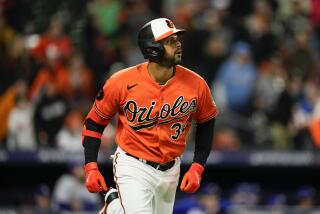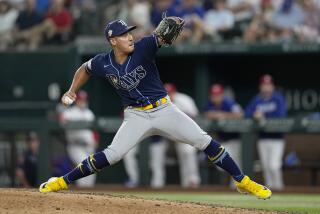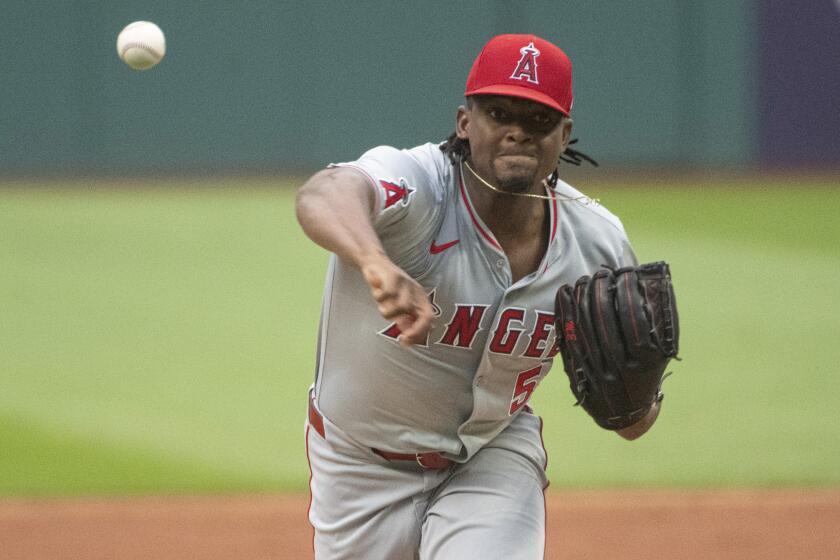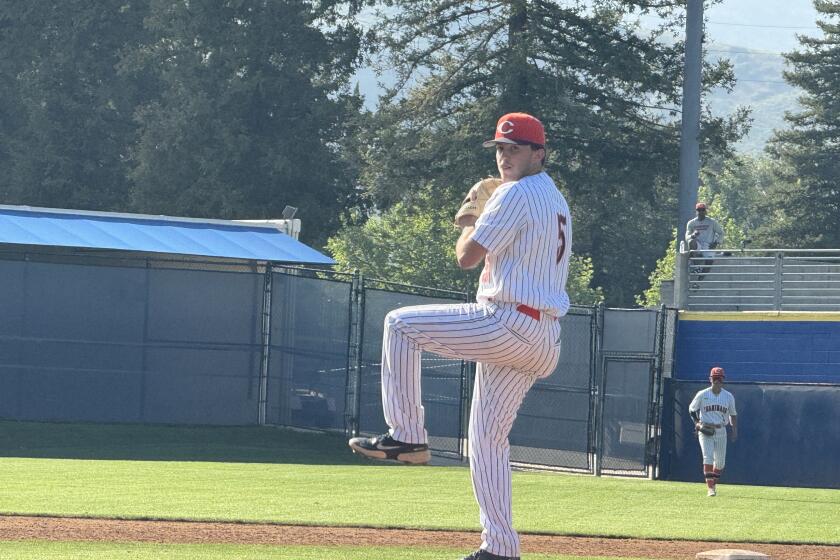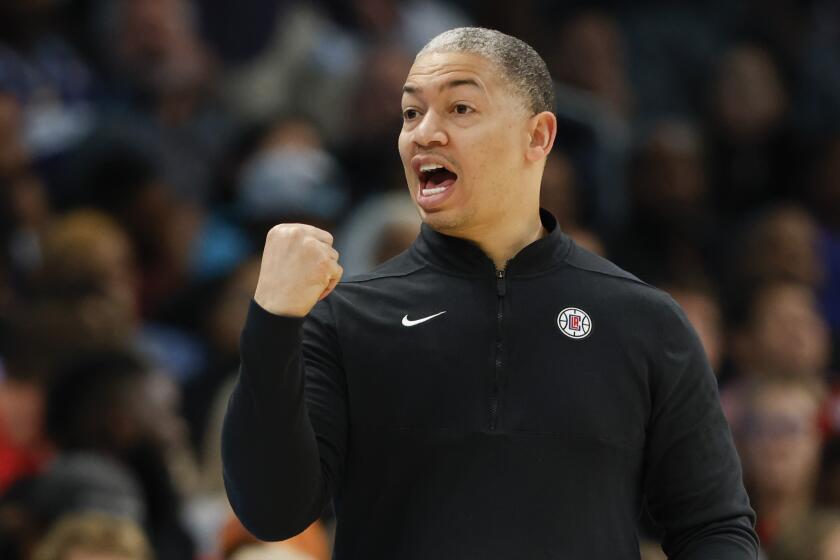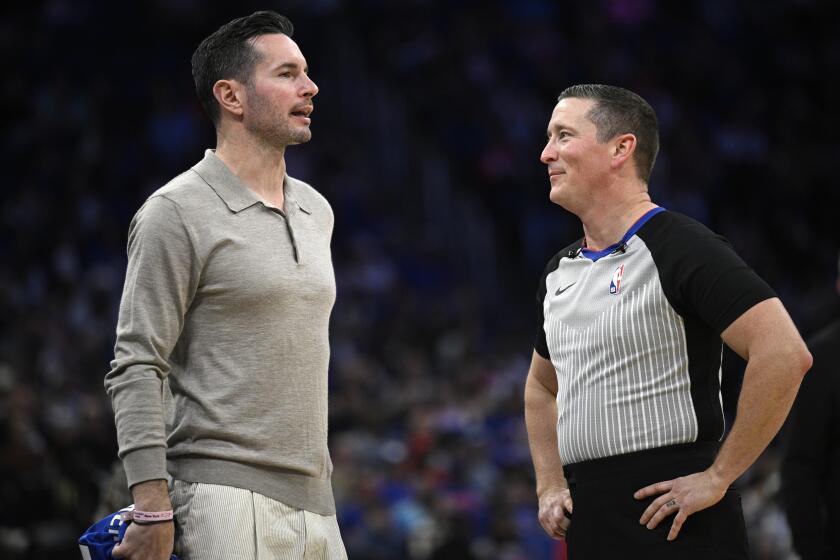Angels to take a hit in amateur draft for signing free agents
The Angels already are playing catch-up against the division-rival Texas Rangers, trailing the defending two-time American League champions by seven games through Sunday in the AL West.
And they’ll be way behind the Rangers again in June when it’s time for Major League Baseball’s annual amateur draft.
Because of losses in compensation picks that came with the team’s off-season free-agent signings of first baseman Albert Pujols and pitcher C.J. Wilson, the Angels’ first pick will be in the third round, No. 114 overall.
The Rangers will have five picks before that — Nos. 29, 39, 53, 83 and 93.
“We’re fully aware of the trade we made to get Albert Pujols and C.J. Wilson,” Angels General Manager Jerry Dipoto said. “We’ll take it.”
Under the new collective bargaining agreement between MLB and the players’ union, the next draft will be held under new rules. There will be a dollar figure assigned to each draft spot and each team will have a total budget based on what it is allowed to spend to sign each of its picks.
For example, the Angels’ first pick at No. 114 is expected to carry a dollar figure of about $400,000. MLB would add that figure to the figures of all the other Angels draft spots to determine the team’s overall budget.
Teams that exceed their budget by up to 5% are taxed a rate 75% on any amount over that. Teams that go 5% to 10% over the cap receive a 75% penalty and lose a first-round pick in the next draft. Going over by 10% to 15% draws a 100% tax plus the loss of first- and second-round picks the next year. Any team over by 15% or more is taxed at 100% and loses its top two picks in the next two drafts.
The Angels have benefited from strong scouting in the past. For example, triple-A outfielder Mike Trout was chosen with the 25th pick of the 2009 draft, yet he is ranked as the premier player of that draft class.
But with draft dollars capped, MLB has made it prohibitive for big-market teams with lower picks like the Angels to benefit from gamesmanship.
Before, a gifted player could let a small-market, low-revenue team know that the team should select someone else. That’s why there were examples in nearly every draft of highly rated players dropping to rich teams that were willing to pay large bonuses.
“This system is designed to incentive-ize the process so the best players don’t fall to the best teams,” said Dan Halem, MLB’s senior vice president of labor relations and general counsel who helped construct the system. “The whole function of this is to promote competitive balance.”
The other path to acquiring amateur talent — the international market — also has been capped, with each team’s bonus pool set at $2.9 million. (In 2008, the Oakland Athletics signed Dominican pitcher Michael Ynoa for $4.2 million.)
“It limits our level of creativity,” Dipoto said.
That was the whole idea.
“We want clubs to draft based on talent, not signability,” Halem said. “This happened because too many of our clubs argued to us that the purpose of the draft was being diverted, with second-, or even sixth-round picks, getting first-round money.”
Agents have argued against the new system, speculating that low-revenue teams that win will have less money to spend in the draft, which is the cheaper, more prudent avenue to build versus free agency.
“There was a huge amount of thought put into this,” Halem said. “No one agrees with every aspect, but the great majority of our clubs were supportive.”
Dipoto said he was ready to live with the consequences of picking late with a limited pool.
“We’re not hamstrung,” he said. “We got Albert Pujols and C.J. Wilson.”
twitter.com/latimespugmire
More to Read
Get our high school sports newsletter
Prep Rally is devoted to the SoCal high school sports experience, bringing you scores, stories and a behind-the-scenes look at what makes prep sports so popular.
You may occasionally receive promotional content from the Los Angeles Times.
